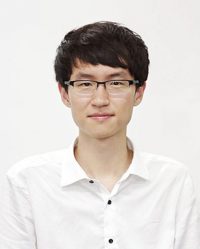Computational Plenoptic Imaging

Speaker: Xing Lin
Affiliation: Stanford University
Abstract: Traditional imaging records limited scene information which hinders its applications. Computational imaging enhances the capability of digital imaging by co-designing of novel optics, electronics, illuminations and computational processing. In this talk, I will present the computational plenoptic imaging approaches, under both macroscopic and microscopic scales, that seek to capture and process high-dimensional visual signal of the scene for facilitating novel applications. I will first talk about our recent works on 4D light field imaging, which explore the additional angular dimension for scanless post-capture refocusing, phase reconstruction and volumetric functional imaging. Second, I will discuss a branch of 3D reconstruction methods that exploit defocus clue for estimating the depth of both opaque and transparent objects accurately. Third, the coded hyperspectral imaging approaches are proposed to perceive the 3D hyperspectral images at video-rate flexibly. Finally, I will briefly mention about the system engineering design toward imaging mouse all-cortex neural circuit dynamics that achieves wide field-of-view as well as high-spatial resolution.
Biography: Xing Lin is a research associate in Howard Hughes Medical Institute at Stanford University. He received a B.Eng. degree with Honors in Electronic Engineering from Xidian University in 2010 and the Ph.D. degree with Honors in Control Science and Engineering from Tsinghua University in 2015. He was a one-year visiting scholar in Camera Culture Group at MIT Media Lab. Xing’s current research focuses on computational imaging, computer vision and optical bioimaging.For more information, contact Prof. Aydogan Ozcan (ozcan@ucla.edu)
Date/Time:
Date(s) - Apr 07, 2017
3:00 pm - 4:00 pm
Location:
E-IV Tesla Room #53-125
420 Westwood Plaza - 5th Flr., Los Angeles CA 90095
